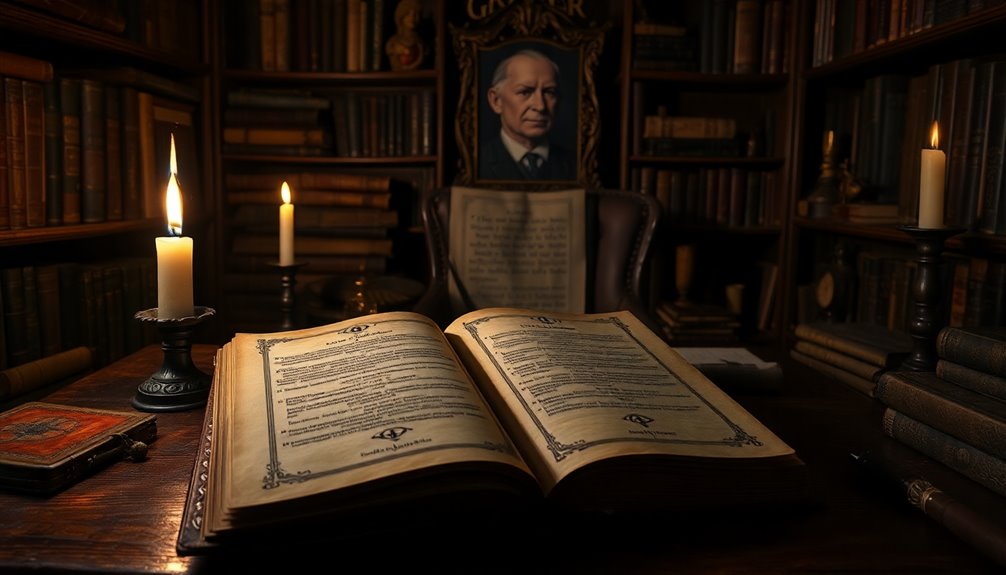Aleister Crowley, born in 1875, was a trailblazer in the realm of mysticism and the occult. He joined the Hermetic Order of the Golden Dawn, enriching his spiritual journey. His philosophy of Thelema emphasized personal will and freedom. Crowley's work, especially "The Book of the Law," challenged traditional beliefs, influencing modern spirituality. Often labeled "the wickedest man in the world," he crafted a legacy that merged ancient traditions with contemporary thought. Beyond his occult practices, his writings and poetry continue to spark intrigue. There's much more to uncover about Crowley's complex life and impact on mysticism.
Key Takeaways
- Aleister Crowley was born in 1875 and became a prominent figure in Western esotericism, known for his exploration of spirituality and the occult.
- He joined the Hermetic Order of the Golden Dawn in 1898, significantly deepening his understanding of ceremonial magic and esoteric practices.
- Crowley's philosophy of Thelema, encapsulated in "Do what thou wilt shall be the whole of the law," emphasizes personal empowerment and spiritual freedom.
- His influential writings, including *The Book of the Law* and *Magick in Theory and Practice*, shaped modern spiritual thought and practices.
- Crowley's complex persona, marked by literary contributions and wartime espionage, remains a point of fascination in contemporary esoteric culture.
Introduction
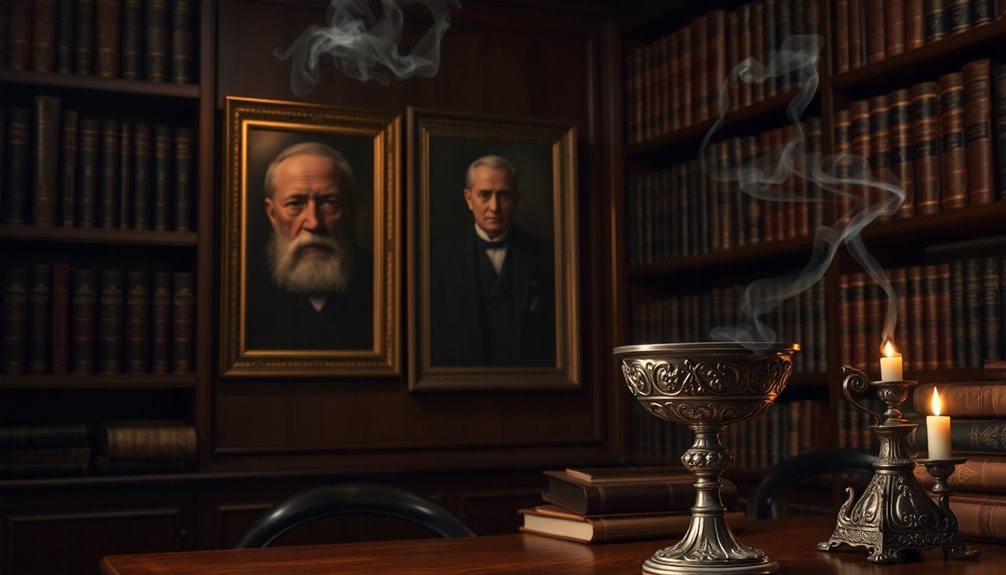
Aleister Crowley, often regarded as one of the most influential figures in 20th-century occultism, revolutionized spiritual thought with his founding of Thelema. Born in 1875, Crowley's biography is marked by a fierce commitment to exploring the depths of spirituality and esoteric practices. His time at Trinity College, Cambridge, though not culminating in a degree, set the stage for his intellectual pursuits.
Joining the Hermetic Order of the Golden Dawn in 1898, Crowley delved into various occult studies, which sparked profound mystical experiences. His adventures, including significant mountaineering expeditions, shaped his understanding of life and death, providing a unique lens through which he viewed spirituality. Although often vilified and branded "the wickedest man in the world," Crowley's literary contributions have left an indelible mark on modern spirituality.
His philosophy, encapsulated in the tenet "Do what thou wilt shall be the whole of the law," continues to influence seekers of knowledge today. Crowley's life and work remain a testament to the transformative power of occultism, inviting you to explore the complex interplay between spirituality and personal freedom.
Occult Practices in Early 20TH Century
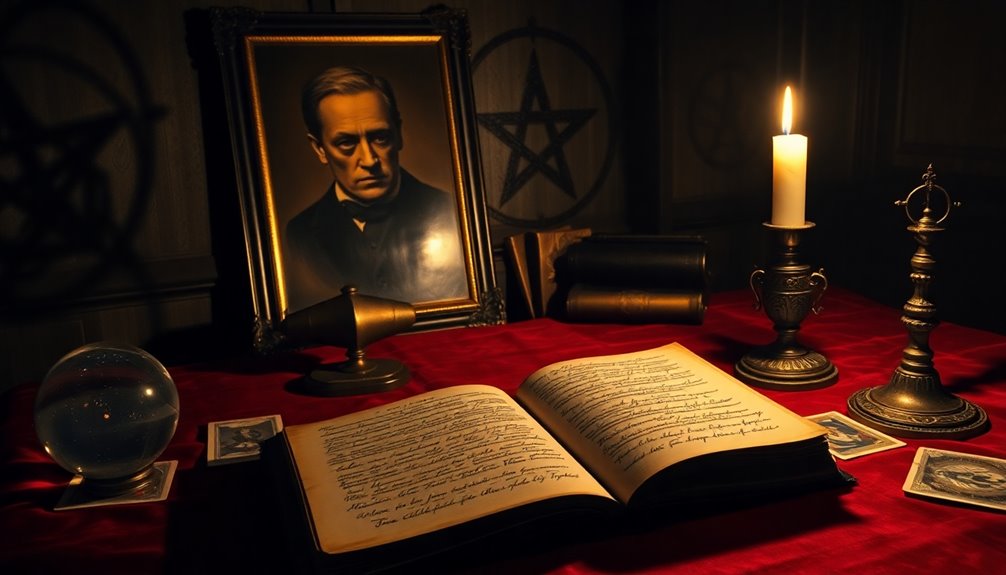
The early 20th century marked a vibrant period for occult practices, drawing in countless individuals eager to explore the mysteries of spirituality. This era saw a surge in interest in Western esotericism, heavily influenced by organizations like the Hermetic Order of the Golden Dawn, which Aleister Crowley joined in 1898. Many practitioners sought to blend ancient mystical traditions with modern psychological insights, leading to Crowley's formulation of Thelema. He emphasized the individual's will as the guiding principle of life, promoting a sense of spiritual freedom.
During this time, ceremonial magic became increasingly prevalent. Crowley and his contemporaries delved into complex rituals and symbols, incorporating elements from Eastern philosophies, such as yoga and meditation, into Western occultism. Crowley's writings, especially "The Book of the Law," published in 1904, became pivotal texts advocating for personal spiritual freedom and challenging traditional religious constraints.
The era was characterized by a fascination with the supernatural, igniting public interest in spiritualism, divination, and alchemical practices. Crowley actively engaged in these pursuits, contributing significantly to the expansive landscape of occult practices in the early 20th century.
Influence on Modern Spirituality
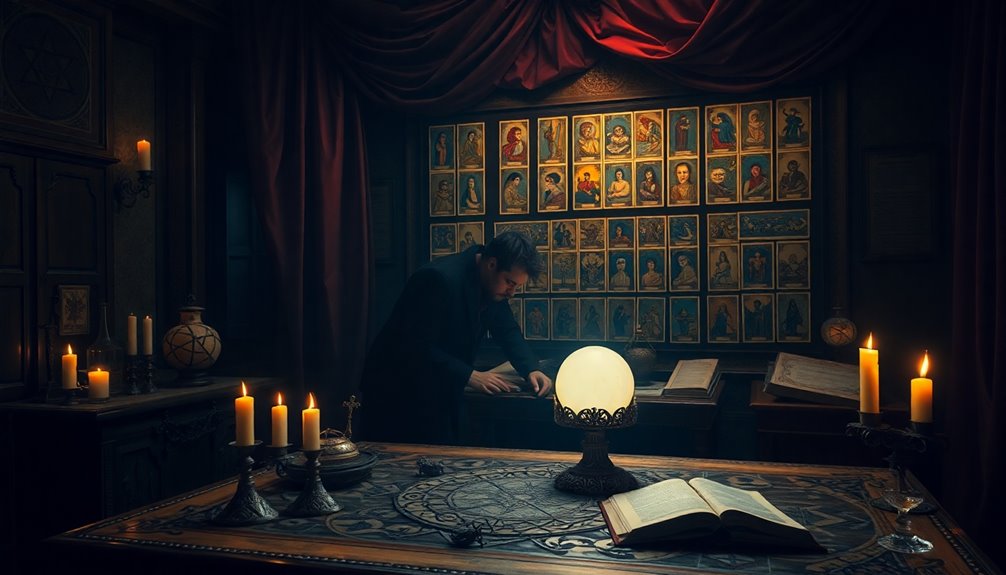
Crowley's philosophy of Thelema has profoundly shaped modern spirituality, encouraging individuals to embrace their personal will and embark on unique spiritual journeys. His famous dictum, "Do what thou wilt shall be the whole of the law," serves as a foundation for many contemporary spiritual movements that prioritize self-discovery and personal empowerment.
Aleister Crowley's writings, particularly "The Book of the Law," have become essential texts in various esoteric and occult practices, inspiring you to explore your own spiritual path. His integration of Eastern and Western traditions, revealed through his mystical experiences in Egypt, fosters a syncretism that characterizes modern spirituality today.
The ongoing cultural fascination with Crowley, reflected in music and literature, has ignited a resurgence of interest in occultism and alternative spiritual practices in the 21st century. Additionally, his emphasis on ritual, symbolism, and the transformative power of magick has significantly influenced modern spiritual practices, making him a pivotal figure in contemporary esoteric thought. By embracing Crowley's insights, you can delve deeper into your spiritual journey and harness the power of Thelema to unlock your potential.
Frequently Asked Inquiries
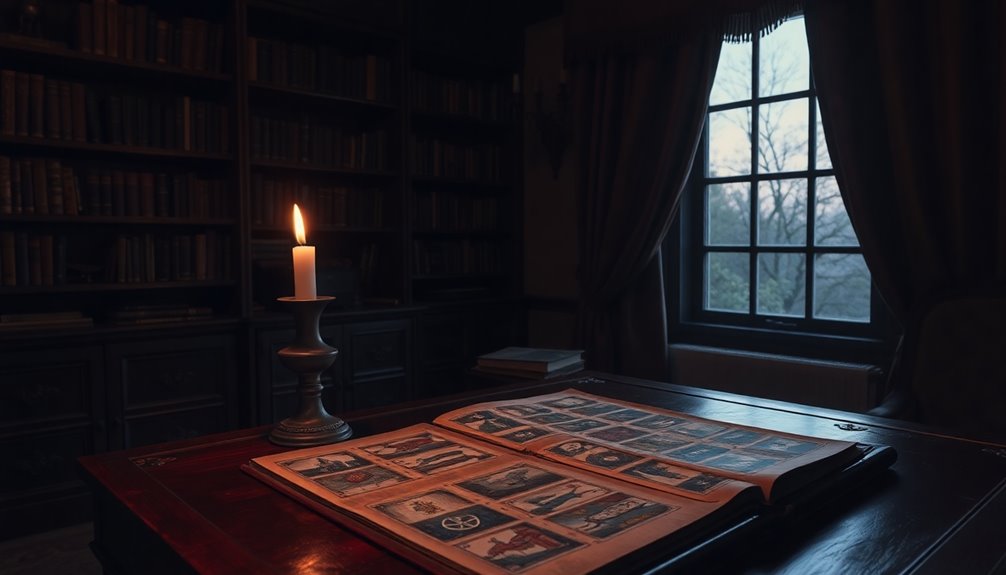
When exploring the life and legacy of Aleister Crowley, many people have common questions that delve into his complex persona and contributions to literature and spirituality. One frequent inquiry concerns his family background and personal life. Tobias Churton's biography sheds light on these aspects, presenting a well-researched account that avoids sensationalism.
Another topic of interest is Crowley's role in espionage during World War I, as his involvement in intelligence operations is often overshadowed by his occult pursuits. This aspect of his life adds depth to his character and reveals a lesser-known side of his activities.
Additionally, readers often wonder about Crowley's poetry and its significance. Churton highlights how Crowley deserves recognition in college literature courses for his artistic contributions, elevating him beyond mere occultist status.
Explore Crowley's Writings Further

Understanding Crowley's life and contributions naturally leads to a closer examination of his writings, which are rich in both literary and philosophical significance. Aleister Crowley's most prominent work, *The Book of the Law*, sets the foundation for his spiritual philosophy, encapsulating the core principle: "Do what thou wilt shall be the whole of the law." This radical approach to personal freedom and responsibility resonates through his other writings as well.
In addition to this pivotal text, Crowley's *The Sword of Song* showcases his poetic talents, offering a blend of artistic expression and occult themes that deserves a place in academic literature. His comprehensive guide, *Magick in Theory and Practice*, combines esoteric knowledge with practical applications, serving as a cornerstone for those interested in magical practices.
Crowley's *The Diary of a Drug Fiend* delves into his personal experiences with addiction, reflecting on the duality of pleasure and pain. His extensive correspondence, lectures, and essays further illuminate his thoughts, solidifying his influence on 20th-century mysticism and the modern understanding of the occult. Exploring these writings reveals the depth of Crowley's impact on spirituality and literature.
Conclusion
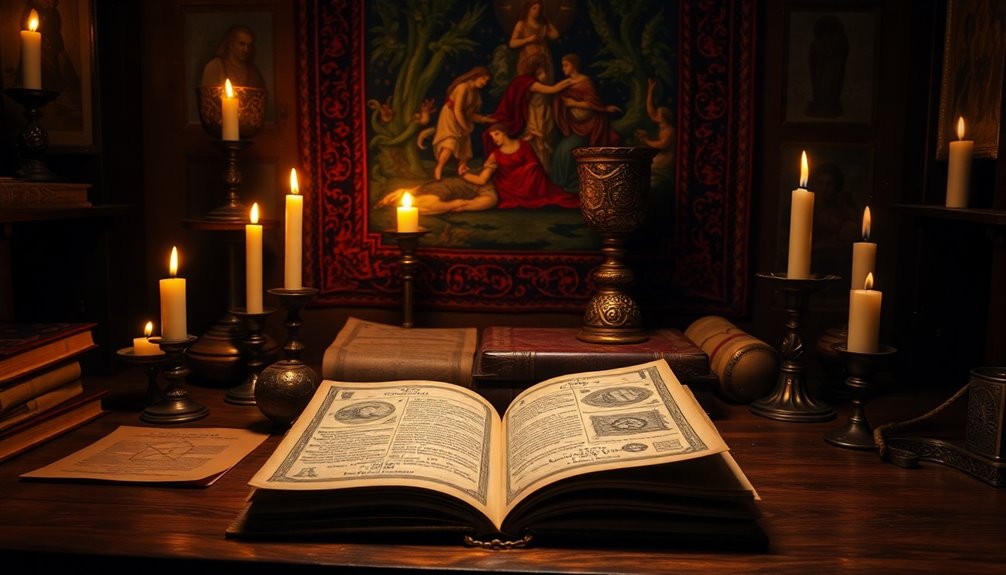
In examining the life and legacy of Aleister Crowley, one can't help but appreciate the intricate interplay between his personal experiences and his profound contributions to spirituality and literature. Tobias Churton's biography of Crowley offers a fresh perspective, revealing the complexities of his character and the impact of his personal life on his work. You'll find that Crowley's contributions to poetry are significant, advocating for his status as a poet worthy of academic recognition.
Churton's insights into Crowley's family background and previously undisclosed details shed light on the motivations behind his choices. Moreover, the exploration of Crowley's espionage activities during World War I adds a fascinating layer to his narrative, showcasing his strategic intelligence and the often-overlooked dimensions of his life. This comprehensive biography challenges existing narratives, inviting you to reconsider how you view Crowley's legacy.
Ultimately, the interplay of his spiritual revolutionary ideals and the intricacies of his life makes Aleister Crowley's story not just one of mysticism, but also a reflection of the human experience itself. Embracing this complexity enriches your understanding of his enduring impact.
Frequently Asked Questions
What Was Aleister Crowley's Religion?
Crowley's religion was Thelema, which you'd find focused on the idea that personal will is paramount. He believed in following one's true path, merging various spiritual traditions to create a unique mystical experience.
What Was Aleister Crowley Famous For?
You might find Aleister Crowley famous for founding Thelema, a spiritual philosophy urging personal will. His controversial lifestyle, mountaineering feats, and prolific writings also contributed to his notoriety as an influential figure in the occult.
Why Did Aleister Crowley Change His Name?
You might find that Aleister Crowley changed his name to reflect his spiritual journey and embrace his beliefs in individual will. This transformation symbolized his break from conventional society and his commitment to personal identity.
How Much Money Did Aleister Crowley Inherit?
You won't find an exact figure for how much money Aleister Crowley inherited, but it was substantial enough to support his eclectic pursuits in mountaineering, writing, and the occult without needing a regular job.

